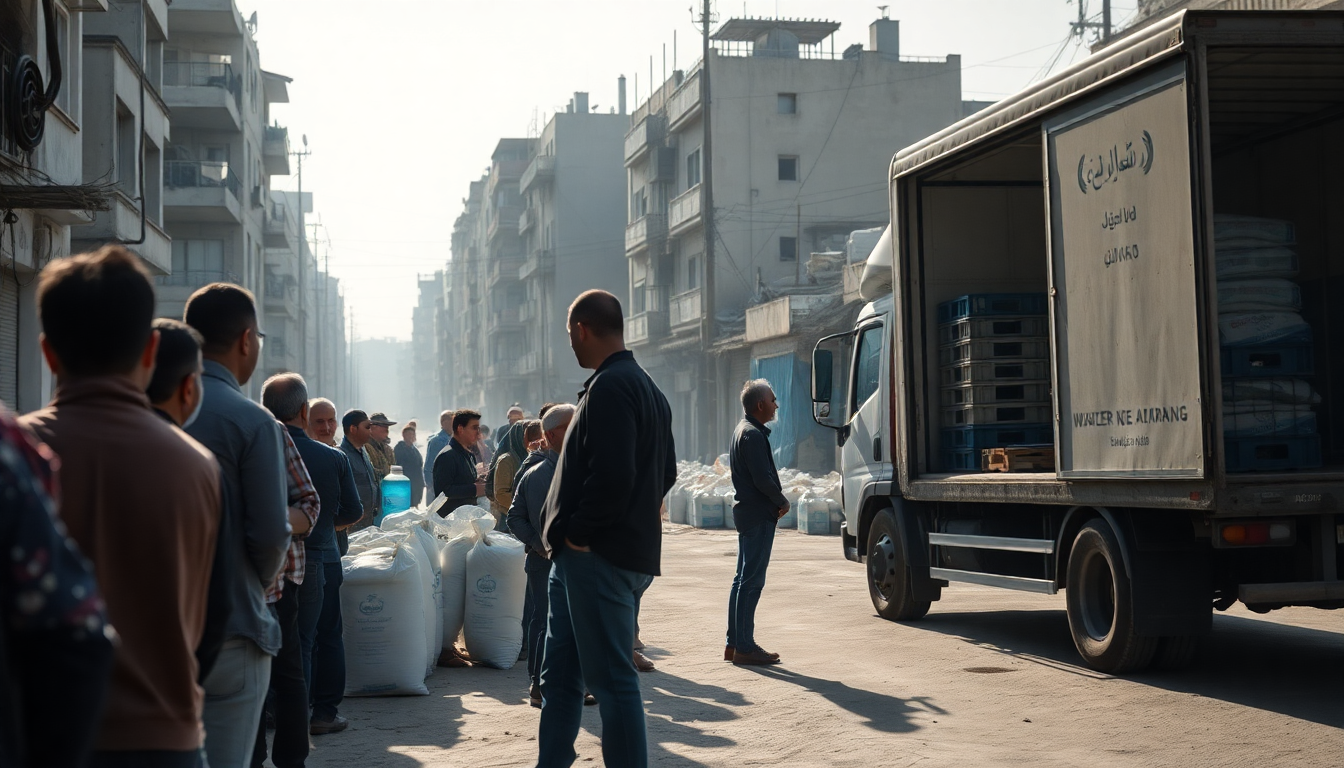Table of Contents
The situation in Gaza is getting worse by the day, as violence ramps up and the humanitarian crisis deepens. Amid all this chaos, the European Union has struck a new deal with Israel intended to help deliver crucial food and fuel supplies to the region. This agreement couldn’t come at a better time, as the local population is facing severe shortages, worsened by ongoing military actions and strict aid restrictions. How can we ensure that the people in Gaza receive the help they desperately need?
Escalating Violence and Humanitarian Needs
Recent reports paint a grim picture, revealing that Israeli military operations in Gaza have led to staggering casualties. Just in one day, Gaza’s Health Ministry reported at least 82 fatalities. One heartbreaking incident involved an airstrike in Deir el-Balah that tragically took the lives of 15 people, including nine children, as they stood in line waiting for essential supplies. Incidents like these have sparked international outrage and underscore the immediate need for humanitarian assistance in the region. What will it take for the world to respond more effectively?
UNICEF’s director, Catherine Russell, has shed light on the unbearable realities families face in Gaza, where a lack of sufficient aid is leaving children at risk of starvation. The ongoing conflict has led to a shocking rise in malnourished children, prompting urgent calls for action to restore life-saving aid. Russell’s statements highlight the broader concerns about the humanitarian toll of military strategies that neglect civilian safety and essential needs. Will we see a change in approach that prioritizes human lives over military objectives?
Meanwhile, Hamas has condemned the Israeli operations as a systematic campaign against the Palestinian people, labeling the situation as ethnic cleansing. Since the conflict began, reports indicate that over 57,000 Palestinians have lost their lives, a grim statistic that reveals the ongoing humanitarian crisis. How long can this cycle of violence continue before real solutions are found?
Negotiations for a Ceasefire
In response to the escalating violence, both Israel and Hamas are currently engaged in intense negotiations, with international mediators like the United States, Qatar, and Egypt stepping in to facilitate discussions. The goal? To establish a ceasefire agreement that would temporarily halt Israeli military operations and allow for the return of captives. While Hamas has shown a willingness to release some hostages, significant barriers remain, particularly regarding the flow of aid and the presence of Israeli troops in Gaza. What compromises will both sides need to make to achieve peace?
Israeli Prime Minister Benjamin Netanyahu has expressed a commitment to pursuing a ceasefire, but it comes with conditions—specifically, the disarmament of Hamas. He has warned that if negotiations falter, Israel might take other actions to achieve its goals. This stance highlights just how complex it is to reach a long-lasting resolution amidst ongoing hostilities. Will the desire for peace outweigh the need for military control?
To complicate matters further, Israeli Defence Minister Israel Katz announced plans to forcibly relocate Palestinians to a tent city in Rafah, a move that could hinder ceasefire negotiations and raise serious concerns about large-scale displacement and human rights violations. Can we afford to overlook the human cost of such decisions?
EU’s Humanitarian Deal and Its Implications
Given the urgent humanitarian needs, the new agreement between the EU and Israel aims to boost aid delivery into Gaza. The EU’s foreign policy chief, Kaja Kallas, has mentioned that the deal could open up more crossings for aid trucks and help repair essential infrastructure, ultimately improving living conditions for civilians in the region. But how effective will this deal really be?
Despite the optimistic outlook from EU officials, aid organizations remain cautious, wary of the ongoing challenges posed by Israeli military restrictions. The specter of famine looms large, with experts warning that the humanitarian situation could worsen without substantial support. While the EU’s efforts to reactivate aid corridors from Jordan and Egypt are critical, the successful implementation of these measures will heavily rely on cooperation from Israeli authorities. Can we trust that the necessary collaboration will happen?
As negotiations continue, there’s a glimmer of hope that this new deal could pave the way for better humanitarian access and eventually contribute to a more stable and peaceful environment for the people of Gaza. What steps will the international community take to ensure this hope becomes a reality?


